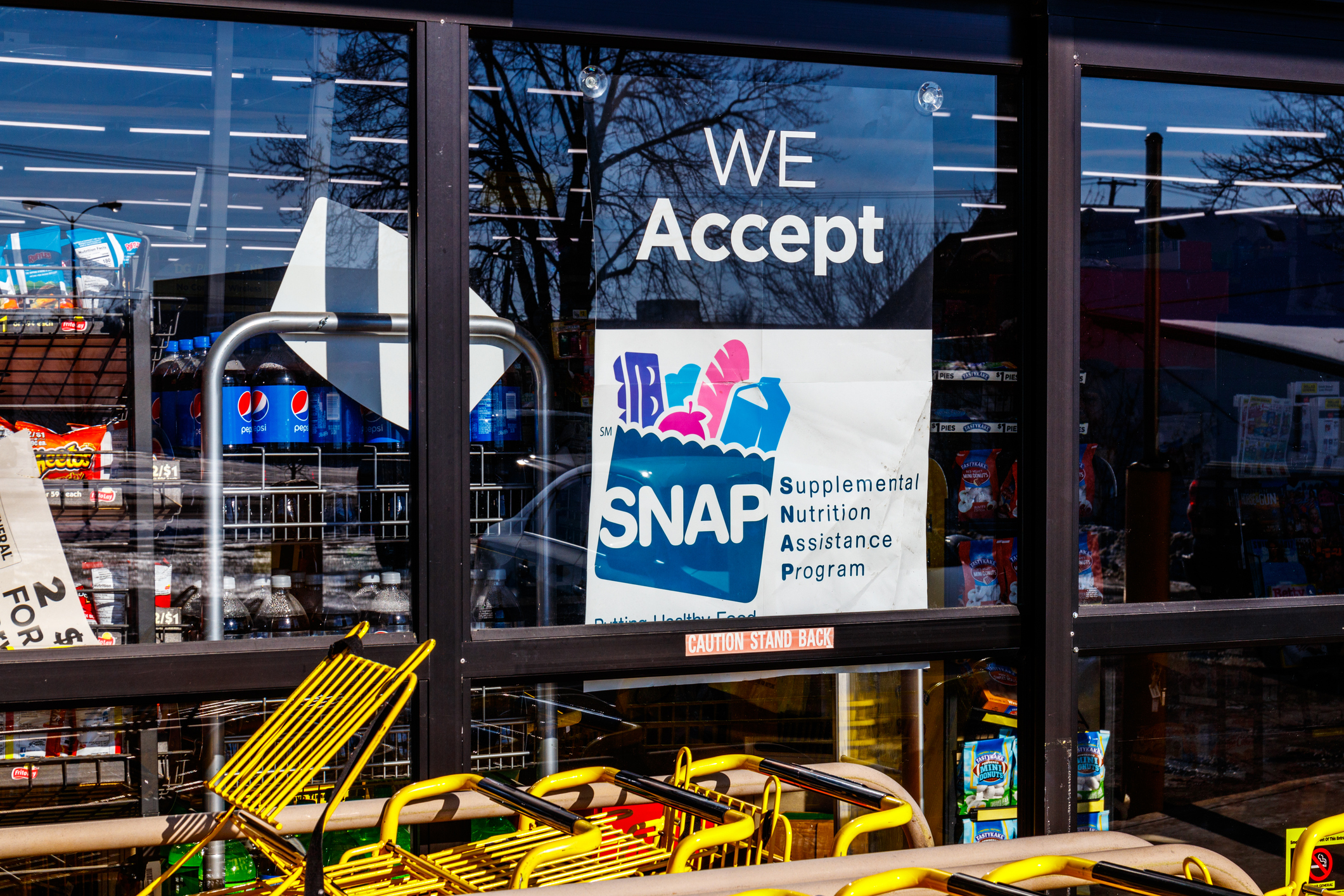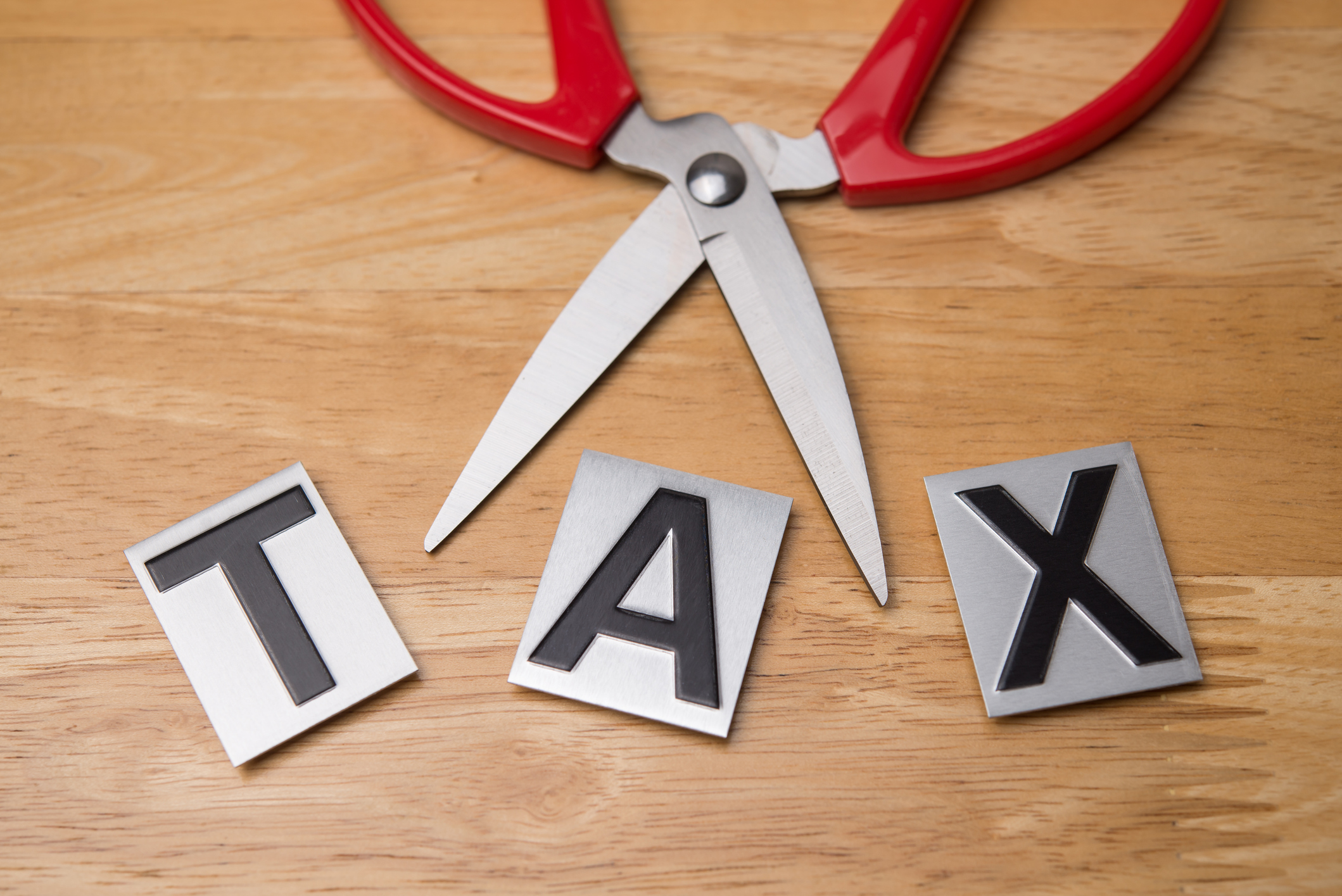Veterans Could Lose Food Benefits Under Trump’s Tax Law: What to Know
Veterans up to age 64 must work to keep food stamps under Trump’s new tax legislation.


Profit and prosper with the best of Kiplinger's advice on investing, taxes, retirement, personal finance and much more. Delivered daily. Enter your email in the box and click Sign Me Up.
You are now subscribed
Your newsletter sign-up was successful
Want to add more newsletters?

Delivered daily
Kiplinger Today
Profit and prosper with the best of Kiplinger's advice on investing, taxes, retirement, personal finance and much more delivered daily. Smart money moves start here.

Sent five days a week
Kiplinger A Step Ahead
Get practical help to make better financial decisions in your everyday life, from spending to savings on top deals.

Delivered daily
Kiplinger Closing Bell
Get today's biggest financial and investing headlines delivered to your inbox every day the U.S. stock market is open.

Sent twice a week
Kiplinger Adviser Intel
Financial pros across the country share best practices and fresh tactics to preserve and grow your wealth.

Delivered weekly
Kiplinger Tax Tips
Trim your federal and state tax bills with practical tax-planning and tax-cutting strategies.

Sent twice a week
Kiplinger Retirement Tips
Your twice-a-week guide to planning and enjoying a financially secure and richly rewarding retirement

Sent bimonthly.
Kiplinger Adviser Angle
Insights for advisers, wealth managers and other financial professionals.

Sent twice a week
Kiplinger Investing Weekly
Your twice-a-week roundup of promising stocks, funds, companies and industries you should consider, ones you should avoid, and why.

Sent weekly for six weeks
Kiplinger Invest for Retirement
Your step-by-step six-part series on how to invest for retirement, from devising a successful strategy to exactly which investments to choose.
The Trump administration is expanding work requirements for food stamp beneficiaries, and the new rules could leave some vulnerable households at risk of going hungry.
The recently passed tax cuts and spending legislation includes a provision that eliminates work exemptions for veterans receiving benefits from the Supplemental Nutrition Assistance Program (SNAP), the federal food assistance program previously known as food stamps.
Under Trump's new tax legislation, able-bodied adults ages 18 to 64 must work, participate in job training, or volunteer at least 80 hours a month to be eligible for benefits — that includes veterans. Only those who are pregnant or disabled would remain exempt. This rule change might start as soon as 2026.
From just $107.88 $24.99 for Kiplinger Personal Finance
Become a smarter, better informed investor. Subscribe from just $107.88 $24.99, plus get up to 4 Special Issues

Sign up for Kiplinger’s Free Newsletters
Profit and prosper with the best of expert advice on investing, taxes, retirement, personal finance and more - straight to your e-mail.
Profit and prosper with the best of expert advice - straight to your e-mail.
This is troubling, given that the majority of the 1.2 million veterans in SNAP households are under 65, don't have a disability, and don't live with children, as reported by the Center on Budget and Policy Priorities (CBPP).
Critics argue that the newly expanded work requirements could cause millions to lose food stamps. That includes thousands of veterans and their families, since many vets struggle to transition to civilian jobs after their service.
“Millions of Americans will be at risk of going hungry — including a significant number of military and veteran families,” a coalition of military and veteran organizations wrote in a letter (PDF) urging Congress to reject provisions that would “leave behind” Veterans with low income.
Here’s what you need to know about how the new SNAP requirements are changing under President Donald Trump’s new 2025 tax law.
New SNAP work requirements impact veterans
Trump’s new tax legislation reshapes the eligibility standards for the nation’s largest anti-hunger program, and it could hit close to home.
More than 40 million families with low incomes rely on SNAP (formerly known as "food stamps") to put food on the table each month. That’s one in eight people, including one in five children across the country.
The so-called ‘big beautiful bill’ proposes significant changes to the life-saving food assistance program. To fund tax cuts, the bill slashes federal SNAP funding by nearly $187 billion in the next decade — the largest cut in the program’s history.
The new legislation also requires states to contribute to the federal benefit program's costs and expands work requirements for eligibility.
Trump’s expanded work requirements will soon impact all SNAP beneficiaries, including Veterans.
- Currently, able-bodied SNAP recipients ages 18 to 54, without dependents or disabilities, are required to work, volunteer or attend training for 80 hours per month to receive benefits. Veterans are exempt from those rules.
- The new law requires able-bodied adults ages 55 to 64 to work to receive food stamps. This rule change is expected to take effect as soon as 2026.
- Under Trump’s tax legislation, veterans, youth aging out of foster care, and individuals experiencing homelessness will no longer be exempt from work requirements. This rule might also begin as soon as 2026.
- Only pregnant individuals or those with a proven disability are exempt from work requirements.
Critics of the measure characterized Trump’s provisions to SNAP as “cruel and harmful,” indicating that expanded work requirements will deny thousands from claiming benefits.
Current work exemptions for veterans, unhoused individuals, and youth aging out of foster programs enable as many as 400,000 people to access SNAP, according to the CBPP.
Millions of veterans rely on food stamps
Trump’s new tax rules are expected to impact approximately 1.2 million Veterans who currently rely on food benefits to afford meals for themselves and their families.
That’s about 8% of the total veteran population of 16.2 million that will eventually be required to work at least 80 hours a month (at least 20 hours a week) to be considered eligible for SNAP benefits.
The problem is that many veterans face unique challenges seeking employment. Lack of work experience beyond military service, discrimination from employers, or other health conditions can make it difficult to maintain a job, according to an analysis from the CBPP.
Some veterans are only offered low-paying jobs or are underemployed, which often leads to other hardships like homelessness. That makes key programs such as SNAP essential for these households.
Rolling back working exemptions for Veterans will likely do more harm than good, particularly in states with a high volume of vets.
- California has the highest number of veterans participating in SNAP: 115,000.
- Florida and Texas have as many as 99,000 Veterans who claim food stamps.
- Oregon and Washington, D.C., have the highest share of veteran participation in SNAP, at 14%.
- That’s followed by Louisiana, New Mexico and West Virginia, with 11%.
Food stamps for veterans: What’s next
If you are a non-disabled veteran under age of 65 who receives SNAP benefits, keep in mind that soon you will be required to work at least 20 hours a week (80 hours a month) to maintain eligibility for food assistance. These changes might begin as soon as next year.
If you're pregnant or have a reported disability, you’ll be exempt from work requirements.
The U.S. Department of Veterans Affairs might be able to assist you with resources to find work that matches your skillset. There are also other community support groups, such as Hire Heroes USA that can help you seek private-sector jobs.
Stay tuned for more information as we cover how Trump’s new work requirements for SNAP may impact different households.
Related
- Millions Could Lose SNAP Food Benefits Under Trump Tax Cut Plan
- Trump’s ‘One Big, Beautiful Bill’ With Trillions in Tax Cuts: What to Know
- How Five States Are Worse Off After Trump’s Cuts to SNAP and Medicaid
Profit and prosper with the best of Kiplinger's advice on investing, taxes, retirement, personal finance and much more. Delivered daily. Enter your email in the box and click Sign Me Up.

Gabriella Cruz-Martínez is a finance journalist with 8 years of experience covering consumer debt, economic policy, and tax.
Gabriella’s work has also appeared in Yahoo Finance, Money Magazine, The Hyde Park Herald, and the Journal Gazette & Times-Courier.
As a reporter and journalist, she enjoys writing stories that empower people from diverse backgrounds about their finances, no matter their stage in life.
-
 Quiz: Do You Know How to Avoid the "Medigap Trap?"
Quiz: Do You Know How to Avoid the "Medigap Trap?"Quiz Test your basic knowledge of the "Medigap Trap" in our quick quiz.
-
 5 Top Tax-Efficient Mutual Funds for Smarter Investing
5 Top Tax-Efficient Mutual Funds for Smarter InvestingMutual funds are many things, but "tax-friendly" usually isn't one of them. These are the exceptions.
-
 AI Sparks Existential Crisis for Software Stocks
AI Sparks Existential Crisis for Software StocksThe Kiplinger Letter Fears that SaaS subscription software could be rendered obsolete by artificial intelligence make investors jittery.
-
 Trump $10B IRS Lawsuit Hits an Already Chaotic 2026 Tax Season
Trump $10B IRS Lawsuit Hits an Already Chaotic 2026 Tax SeasonTax Law A new Trump lawsuit and warnings from a tax-industry watchdog point to an IRS under strain, just as millions of taxpayers begin filing their 2025 returns.
-
 The December CPI Report Is Out. Here's What It Means for the Fed's Next Move
The December CPI Report Is Out. Here's What It Means for the Fed's Next MoveThe December CPI report came in lighter than expected, but housing costs remain an overhang.
-
 The November CPI Report Is Out. Here's What It Means for Rising Prices
The November CPI Report Is Out. Here's What It Means for Rising PricesThe November CPI report came in lighter than expected, but the delayed data give an incomplete picture of inflation, say economists.
-
 Law Reversal Looming? Trump Eyes 2026 Gambling Winnings Tax Change
Law Reversal Looming? Trump Eyes 2026 Gambling Winnings Tax ChangeTax Deductions It's no secret that the IRS is coming after your gambling winnings in 2026. But how long will that last?
-
 Trump's Plan to Eliminate Income Tax: 7 Things to Know Now
Trump's Plan to Eliminate Income Tax: 7 Things to Know NowTax Policy The potential consequences of eliminating taxes in favor of Trump tariffs could impact everything from inflation to Social Security and might give some U.S. taxpayers pause.
-
 Costco Sues Over Trump Tariffs: What Could That Mean for Prices in 2026?
Costco Sues Over Trump Tariffs: What Could That Mean for Prices in 2026?Tariffs The retailer is making headlines not just for its famous hot dog and gold bars but for suing the Trump administration over tariffs.
-
 Are New Trump $2,000 Stimulus Payments Coming in 2026? What to Know Now
Are New Trump $2,000 Stimulus Payments Coming in 2026? What to Know NowTax Policy A promise of $2,000 tariff dividend checks is raising questions and fueling confusion.
-
 Could Tax Savings Make a 50-Year Mortgage Worth It?
Could Tax Savings Make a 50-Year Mortgage Worth It?Buying a Home The 50-year mortgage proposal by Trump aims to address the housing affordability crisis with lower monthly mortgage payments. But what does that mean for your taxes?